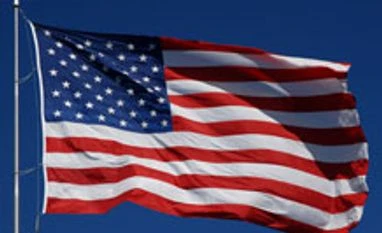An American team which arrived in Nigeria to assist the Abuja government in finding more than 200 schoolgirls abducted by Boko Haram militant group faces a "challenging" task, US officials have said here.
"It's challenging. Time is of the essence. It's been, I think, 25 days now since these girls were taken. We're going to do everything possible. Given the circumstances, it's tough, and I don't want to make any predictions about the outcome," State Department Spokesperson Jen Psaki said.
A team of eight US officials arrived in Abuja, the Nigerian Capital. This includes seven from the US Africa Command and one from the State Department.
"These individuals will be complementing our team on the ground. They'll be working with authorities and local populations. They'll be providing technical and investigatory assistance, helping with hostage negotiations, advising on military planning and operations, and assisting with intelligence and information," Psaki said, adding priority is to get the girls back to their families.
At the Pentagon, Defense Secretary Chuck Hagel received two briefings on the status of the US efforts to support Nigeria in locating the missing girls.
The first was a face-to-face briefing from Africa Command commander; the second was from Africa experts on his staff, Pentagon Press Secretary Rear Admiral John Kirby said.
"Both briefings covered the details surrounding the additional team members the military is sending to Nigeria as part of the inter-disciplinary coordination cell, as well as a sense of what we know about the kidnapping and Boko Haram's activities in the region. The Secretary will closely monitor developments," Kirby said.
"We're not talking about US military operations in Nigeria to go find these girls. That's not the focus here. The focus is sending subject matter experts that can help advise and assist the Nigerian authorities in their search for these girls," Kirby told reporters.
"Look, it's a tragic incident. The (US) President was clear he wants to help in any way we can. This is the help that the Nigeria has accepted and we believe it's the appropriate step right now," he said, adding the job of the defense department personnel being sent to Nigeria is to advise and assess.
Right now, there's no active discussion about the use of unmanned systems in the search.
"We've got a team just arriving. They're going to make that assessment. They're going to look at whatever the gaps are and capabilities and then we'll have that discussion later on," Kirby added.
Police say more than 300 girls and young women were abducted on April 15 by the Islamic militant Boko Haram group from their school in northeastern Nigeria. About 53 girls escaped and others remain in captivity.
"It's challenging. Time is of the essence. It's been, I think, 25 days now since these girls were taken. We're going to do everything possible. Given the circumstances, it's tough, and I don't want to make any predictions about the outcome," State Department Spokesperson Jen Psaki said.
A team of eight US officials arrived in Abuja, the Nigerian Capital. This includes seven from the US Africa Command and one from the State Department.
Also Read
Another inter-agency team of seven officials - three each from the FBI and the State Department and one from the USAID - are scheduled to land today.
"These individuals will be complementing our team on the ground. They'll be working with authorities and local populations. They'll be providing technical and investigatory assistance, helping with hostage negotiations, advising on military planning and operations, and assisting with intelligence and information," Psaki said, adding priority is to get the girls back to their families.
At the Pentagon, Defense Secretary Chuck Hagel received two briefings on the status of the US efforts to support Nigeria in locating the missing girls.
The first was a face-to-face briefing from Africa Command commander; the second was from Africa experts on his staff, Pentagon Press Secretary Rear Admiral John Kirby said.
"Both briefings covered the details surrounding the additional team members the military is sending to Nigeria as part of the inter-disciplinary coordination cell, as well as a sense of what we know about the kidnapping and Boko Haram's activities in the region. The Secretary will closely monitor developments," Kirby said.
"We're not talking about US military operations in Nigeria to go find these girls. That's not the focus here. The focus is sending subject matter experts that can help advise and assist the Nigerian authorities in their search for these girls," Kirby told reporters.
"Look, it's a tragic incident. The (US) President was clear he wants to help in any way we can. This is the help that the Nigeria has accepted and we believe it's the appropriate step right now," he said, adding the job of the defense department personnel being sent to Nigeria is to advise and assess.
Right now, there's no active discussion about the use of unmanned systems in the search.
"We've got a team just arriving. They're going to make that assessment. They're going to look at whatever the gaps are and capabilities and then we'll have that discussion later on," Kirby added.
Police say more than 300 girls and young women were abducted on April 15 by the Islamic militant Boko Haram group from their school in northeastern Nigeria. About 53 girls escaped and others remain in captivity.
)